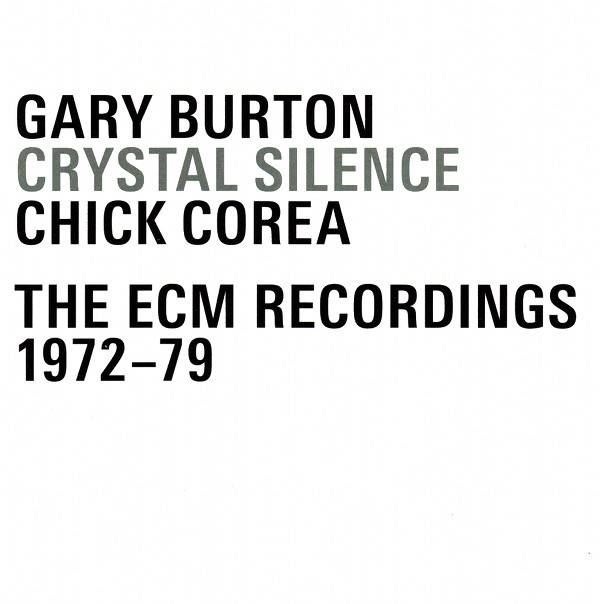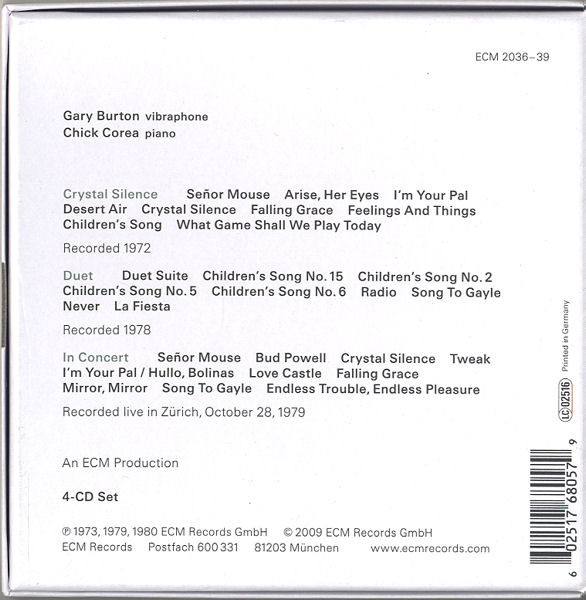Here’s a link to Quad SACD “Return to Forever.”
https://www.duttonvocalion.co.uk/proddetail.php?prod=CDSML8528
View attachment 62979
i shall be blasting this wonderful SACD later at full volume in his honour

Here’s a link to Quad SACD “Return to Forever.”
https://www.duttonvocalion.co.uk/proddetail.php?prod=CDSML8528
View attachment 62979

My first jazz purchase was Stan Getz's Captain Marvel. All the songs were written by Chick.Believe it or not, Chick Corea was my very first purchase of Jazz music. So, I have a sentimental place with him and his music.
Is it guitarists' turn next? Is 2021 finally the year when the predictions about Keith Richards will come true?Bass players are taking a beating also, Lemmy, Squire, Lake, Prestia to name a few.
Is it guitarists' turn next? Is 2021 finally the year when the predictions about Keith Richards will come true?


I agree with Fleck. Fusion has got a bad rep in recent years. It is more than a little rock added to jazz, though that exists as well.There will be two tribute concerts this weekend at Lincoln Center.
The link below should get folks through the New York Times paywall as my guests:
Chick Corea, the Master Mixer of Jazz’s Past and Future
An eclectic array of musicians will gather in New York to celebrate the pianist’s legacy.
Five collaborators and admirers discuss his experiments, artistry and generosity.
Chick Corea, the Master Mixer of Jazz’s Past and Future
BÉLA FLECK
It just was all music to him. So I don’t know if there was much of a line between the different styles.
In terms of Return to Forever, for me, I don’t think I would be doing anything I’m doing if it wasn’t for that band.
In 1975, I saw them at the Beacon Theater and I wouldn’t have gone on to try to play the banjo the way I play.
I wouldn’t have had the Flecktones.
Fusion has almost gotten a bad name or something, but if you go back to the original stuff, this music had a lot of intelligence to it.
It was not just rock with jazz. It was its own thing. It really was a fusion.
I have a friend, Alfred Soto, who haaaaates to see the descriptor “dated” applied to music. His argument, and he’s right, boils down to: why are Linn drums and Fairlight stabs perceived to mark the songs that feature them as inextricably of their time, when the instrumental tones associated with “classic rock” are not similarly freighted with negative associations? Why is it OK to sound like Led Zeppelin IV, but not Debarge’s “Rhythm of the Night”? The simple answer, of course, is bias — (mostly) white rock being seen by those who shape(d) The Discourse, when it was still up for grabs, as inherently more legitimate (yeah, yeah, stop laughing) than black and Latin pop. And even if I recognize that it’s the result of cultural programming, I can’t deny that my taste leans more toward the analog than the digital, and that certain programmed rhythms, keyboard sounds, and melodic choices will always strike me as both “of the ’80s” and somehow disposable/plastic/kitsch.
The more complicated answer to the question of why certain sounds are “dated” and others aren’t is technological. Analog audio recording, as an art and a craft, reached its peak in the mid to late ’70s. Things were already starting to go awry here and there (Example No. 1: the rubber-band bass sound heard on acoustic jazz albums from about 1973 to the early ’90s), but in general, albums recorded in the 1970s sound fucking incredible, and I’m not just talking about Steely Dan. Even the most replacement-level rock acts — your Foreigners, your Bad Companys, your also-rans I won’t even bother naming — could dial in guitar and drum sounds that were like being wrapped in a warm blanket of sound.
Enter your email address to join: